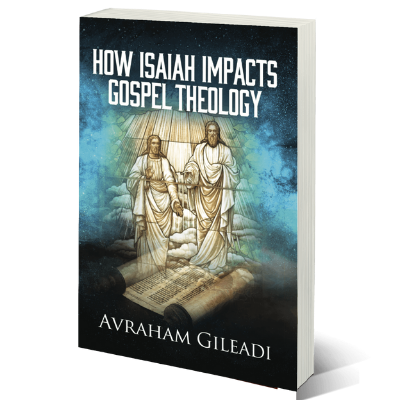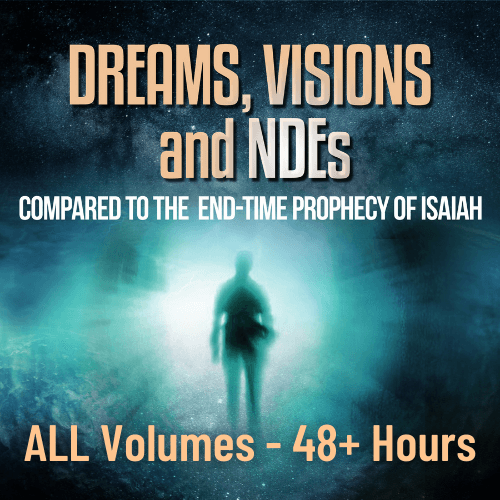The Book of Mormon’s End-Time Scenario Mirrors Isaiah’s
By repeatedly pointing us to the words of Isaiah, Jesus and Book of Mormon prophets evidently expect us to gain an understanding of these first before we assume we comprehend what Book of Mormon prophets are teaching us. Failing that, something important will surely elude us.
3 Nephi 20:11
Ye remember that I spake unto you, and said that when the words of Isaiah should be fulfilled—behold they are written, ye have them before you, therefore search them.
2 Nephi 32:7
I, Nephi, cannot say more; the Spirit stoppeth mine utterance, and I am left to mourn because of the unbelief, and the wickedness, and the ignorance, and the stiffneckedness of men; for they will not search knowledge, nor understand great knowledge, when it is given unto them in plainness, even as plain as word can be.
Mormon 8:23
Search the prophecies of Isaiah. Behold, I cannot write them.
So diffused are Isaiah’s words and concepts throughout the Book of Mormon that indeed we can hardly comprehend its message without them. Persons who have paid the price of understanding Isaiah’s words know this well, while those who fail to pay the price are taking them lightly.
See Book of Mormon references to and citations of the words of Isaiah in 1 Nephi 14:7; 15:20; 19:23–24; 20:1–22; 21:1–26; 22:8, 11, 14, 19; 2 Nephi 6:4–7, 12–18; 7:1–11; 8:1–25; 10:9; 11:2, 8; 12:1–24:32; 25:1–8, 17–18; 27:1–35; 29:1; Jacob 6:2; Mosiah 12:21–24; 14:1–12; 15:6, 10, 14–18, 29–31; Helaman 8:20; 3 Nephi 16:17–20; 20:11, 32–45; 21:9–10, 29; 22:1–17; 23:1–3.
A numbing complacency compounds itself in those who are content to read the scriptures on a surface level and don’t search them for deeper layers of truth. Haven’t they learned from Jesus’ parables to the multitude, whose meaning he explained to his disciples afterwards in private?
Are Isaiah’s words merely of interest historically or for their quaint symbolisms or poetic style? Is that why Book of Mormon prophets took pains to engrave so many on gold plates? What is Isaiah’s great message that so easily escapes us so that we give up attempting to discover it?
2 Nephi 32:7
I, Nephi, cannot say more; the Spirit stoppeth mine utterance, and I am left to mourn because of the unbelief, and the wickedness, and the ignorance, and the stiffneckedness of men; for they will not search knowledge, nor understand great knowledge, when it is given unto them in plainness, even as plain as word can be.
That plainness appears when employing simple literary tools for searching the words of Isaiah. Not only do they apply to Isaiah but they open up all scriptures to a much deeper understanding. It isn’t incidental but a deliberate challenge that we are commanded to search Isaiah’s words.
For too long have “precepts of men” run rampant in our minds that have been accepted as true interpretations of Isaiah’s prophecies. And these from academics whom we trusted to tell us their meaning! So that now an integral part of learning the truth involves unlearning old falsehoods.
2 Nephi 9:28
O that cunning plan of the evil one! O the vainness, and the frailties, and the foolishness of men! When they are learned they think they are wise, and they hearken not unto the counsel of God, for they set it aside, supposing they know of themselves, wherefore, their wisdom is foolishness and it profiteth them not. And they shall perish.
It is his end-time people “in Zion”—Latter-day Saints—whom God condemns for subscribing to false teachings. As a consequence, having lost the key to understanding Isaiah, we rarely apply his condemnatory passages to ourselves, assuming they must refer to God’s people in the past.
2 Nephi 28:14–15
They have all gone astray save it be a few, who are the humble followers of Christ; nevertheless, they are led, that in many instances they do err because they are taught by the precepts of men. O the wise, and the learned, and the rich, that are puffed up in the pride of their hearts, and all those who preach false doctrines, and all those who commit whoredoms, and pervert the right way of the Lord, wo, wo, wo be unto them, saith the Lord God Almighty, for they shall be thrust down to hell!
We have similarly mistaken our identity. Who are the house of Israel and who are the Gentiles? If we assume we are one when in reality we are the other, how shall we know the role God has assigned us? The Book of Mormon defines who we are but precepts of men get in the way.
Isaiah 29:13–14
Because these people approach me with the mouth
and pay me homage with their lips,
while their heart remains far from me—
their piety toward me consisting of
precepts of men learned by rote—
therefore it is that I shall again astound these people
with wonder upon wonder,
rendering void the knowledge of their sages
and the intelligence of their wise men insignificant.
Isaiah’s literary patterns affirm Jesus’ teaching that Isaiah addresses two peoples simultaneously: (1) God’s people of his day; and (2) his end-time people—Latter-day Saints. Before applying his glorious promises to us, therefore, we must first apply his censuring ones. They speak of us.
3 Nephi 23:2–3
For surely he [Isaiah] spake as touching all things concerning my people which are of the house of Israel; therefore it must needs be that he must speak also to the Gentiles. And all things that he spake have been and shall be, even according to the words which he spake.
That twofold fulfillment—in Isaiah’s day and in the end-time—characterizes all sacred history, including Book of Mormon history: “The thing that has been, it is what shall be, and that which has been done is what shall be done. There is nothing new under the sun” (Ecclesiastes 1:9).
While on the one hand Nephi can thus say, “I have made mention unto my children concerning the judgments of God, which have come to pass among the Jews . . . . according to all that which Isaiah hath spoken” (2 Nephi 25:6), on the other, he looks forward to their end-time fulfilment.
2 Nephi 25:7–8
In the days that the prophecies of Isaiah shall be fulfilled men shall know of a surety, at the times when they shall come to pass. Wherefore, they are of worth unto the children of men, and he that supposeth that they are not, unto them will I speak particularly, and confine the words unto mine own people; for I know that they shall be of great worth unto them in the last days; for in that day shall they understand them; wherefore, for their good have I written them.
Isaiah pointedly declares that his prophecies have an end-time fulfilment. Meaning not only that God’s people of his day typify God’s end-time people but that the names of ancient nations act as codenames of end-time ones. How Isaiah characterizes those nations is a clue to their identity.
Isaiah 30:8
Go now, write on tablets concerning them;
record it in a book for the end-time,
as a testimony forever.
Isaiah 46:10
I foretell the end from the beginning,
from ancient times things not yet done.
The “end” is foretold by what happened in the beginning. World history of Isaiah’s day, in other words, repeats itself in the modern age as the one foreshadows the other. It takes a little detective work to figure out which end-time persons and nations resemble their ancient counterparts.
Isaiah 44:7
Who predicts what happens as do I,
and is the equal of me
in appointing a people from of old as types,
foretelling things to come?
While many people apply Isaiah’s words to the time of Joseph Smith, that too is founded on precepts of men—on misunderstanding the two timeframes to which they apply. To Isaiah, the house of Israel’s end-time restoration is center stage, preparing the way for Jehovah’s coming.
In short, whenever Jesus and Book of Mormon prophets predict end-time events they base them on the prophecies of Isaiah. They may clarify, expand upon, nuance, or connect different passages of Isaiah, but their commentary is grounded in his words. He is their end-time prophet.
Read More Key Book of Mormon Areas of Interest
Recommended Reading
& Listening
Avraham Gileadi, How Isaiah Impacts Gospel Theology. Twenty-four beautiful scriptural expositions for LDS readers on how deeply Isaiah influences Mormon thought and gospel doctrine. Hebron Books, 2020: 100 pages. Softcover $12.94;
E-Book $7.95; MP3 $7.95.


Book of Mormon Isaiah Areas of Interest










